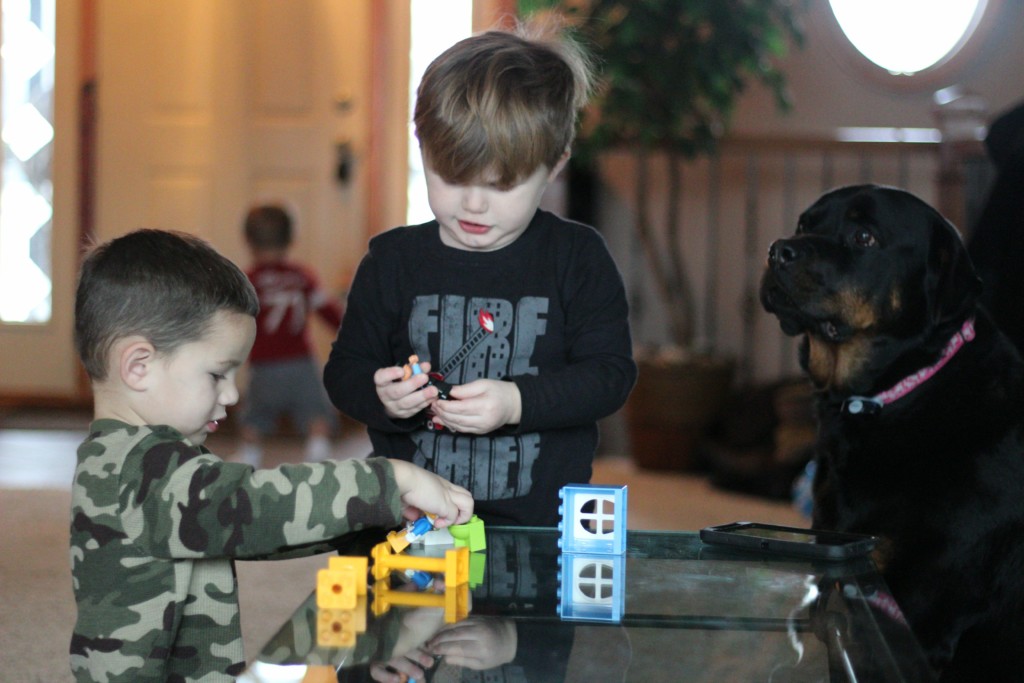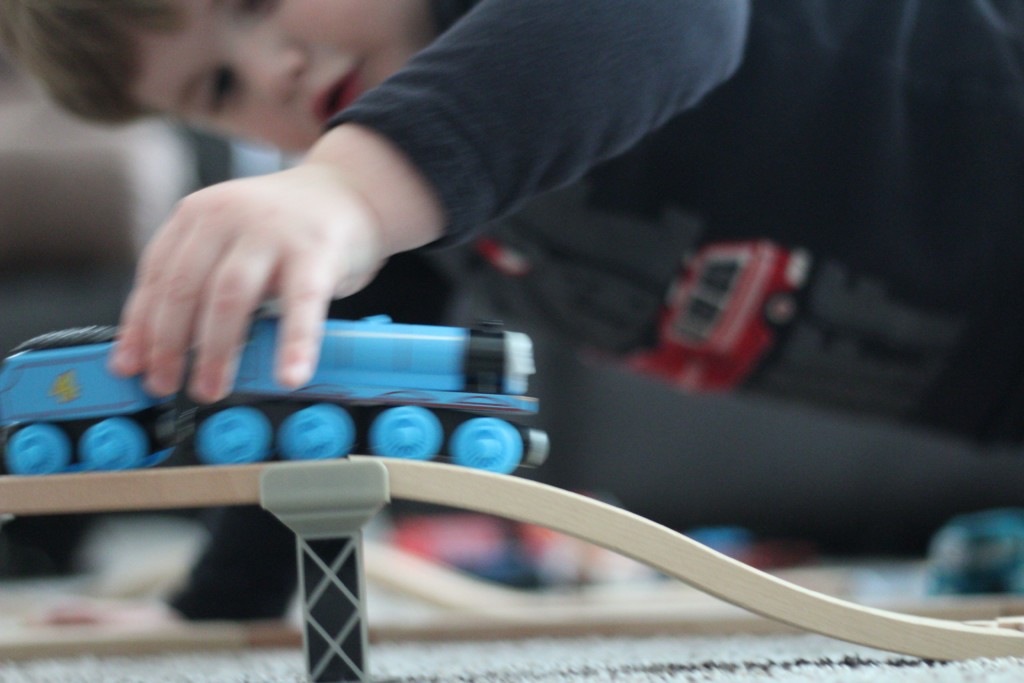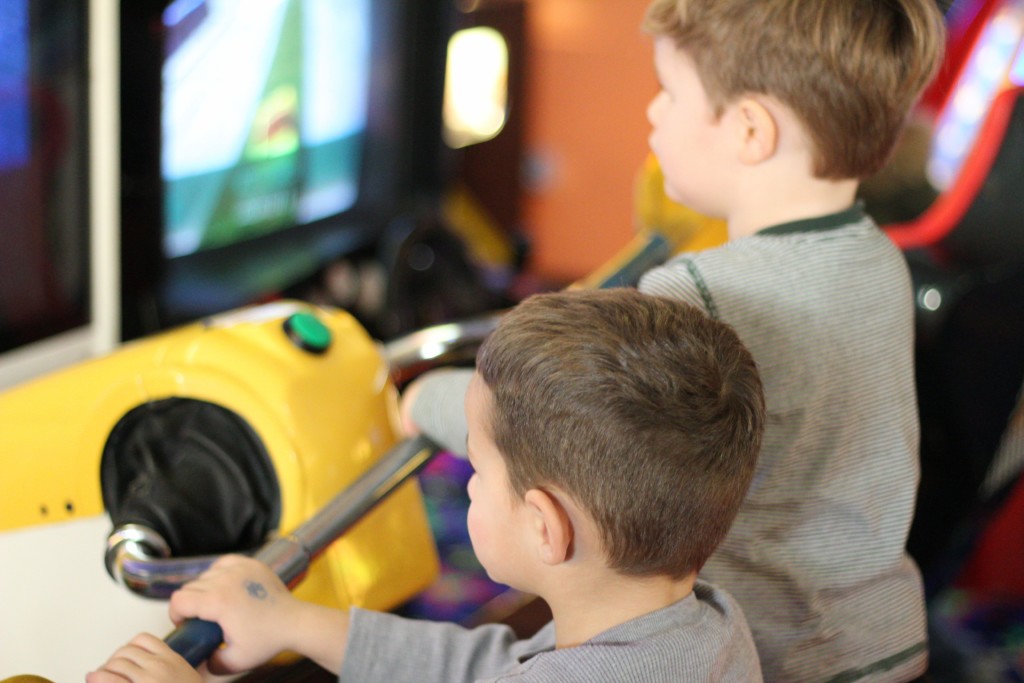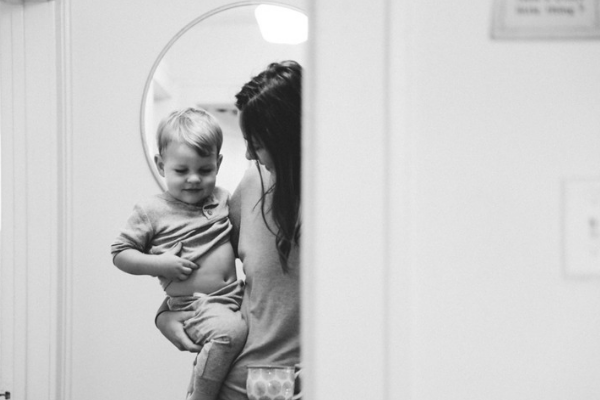There have been several articles and viral social media posts making the rounds lately promoting the idea that kids shouldn’t be forced to share. While I am all for teaching our children autonomy and boundaries (and I will be the first to say that my son’s most coveted items stay safely at home), there’s more at stake by discouraging our kids from sharing than we may realize.
Sharing becomes easier with practice, but it isn’t as much of a learned behavior as you might think. A series of experiments revealed that children initiate the behaviors of showing and giving on their own accord as early as 12 months of age. Researchers call this “partner play,” otherwise known as sharing. This means that humans want to share, and given that we are social animals, it’s an incredibly important skill to develop. It teaches us to compromise, negotiate, and cope with disappointment.
Not sharing spurs divisiveness. In a study, participants were observed in this way: Some children were given candy that they could choose whether or not to share. They were called givers. Other children were given a crayon. They were called receivers. The receivers responded to the fairness or unfairness of a situation with retaliation (meaning they would withhold the crayon), without any prompting from adults. Whether my child is on the giving or receiving end in a real life situation, it’s my responsibility to show him the benefits to both being generous and also not making decisions out of spite.
Some argue that life isn’t fair, and that we shouldn’t be preoccupied with total fairness in a communal play setting. My child should have to wait (a skill that comes from a part of the brain not developed until the teen years) until your child is done playing with the toy car, which may be never, and I should just deal with it. The sooner we all learn how unfair life is, the better, right? Our children will have plenty of opportunities to learn that without our assistance. We’re not going to protect our children’s hearts by hardening them. Consider your worst enemy for a moment. Would tensions be lessened if that person allowed him or herself to be more vulnerable, open, loving and . . . reciprocal?
Perhaps a better solution would be to allow each child to play with the item for an equal amount of time, or take the toy out of the equation altogether. Some parents feel their children should be able to bring any toy they want to, say, a crowded park and should not have to share with strangers. I personally wouldn’t bring the item at all. It’s not necessary, for one thing, and Santa isn’t always able to be as abundant in his gift giving with all children equally. So if an argument for non-sharing is building a child’s self-esteem by giving them the confidence to say no, in this situation, I’d say non-sharing has the potential to break the other child down. Clearly, the second child wasn’t as deserving or Santa would have brought it for him, too.
It’s also really important that we acknowledge how faulty many of the examples given in these viral articles are. One hypothetical adult walks up to another one and takes something directly out of her hands. Proponents of non-sharing suggest that if we wouldn’t stand for that kind of behavior ourselves, why would we expect our kids to? Firstly, we expect children to do a lot of things that adults don’t have to do, often because we’re using every opportunity in their little lives to teach them about the greater implications of their choices. So might it be better to teach peaceful conflict resolution techniques instead of teaching them to build a wall? Secondly, the examples describe theft, and it’s not exactly how sharing in a children’s communal setting works. More often, kids are encouraged to take turns with toys that don’t belong to them in the first place (take a classroom setting, for example).
Adult examples also aren’t congruent with a child’s brain development. The human brain fully matures around age 25. By then, we understand right from wrong, we know how to be patient, we know how to ask permission, and some of us know how to handle rejection in a civil manner. How do you think we learned all of this? Likely, we learned by doing. We learned by duking it out with our siblings and getting into squabbles with friends. We learned by positive or negative reinforcement. We watched the successes and failures of adults in our lives and copied them.
Would I share my sandwich or my cell phone with an adult (even a stranger) if he politely asked me today? I would and I have, and I haven’t felt taken advantage of for doing so. I’m choosing to teach my son to do unto others as he would have done to him despite the outcome, because kindness, empathy, and compassion matter. And it all begins with a little sharing.















I loved this blog Chel! I was reminded of how in elementary school, kids would bring toys for show and tell and how I can remember so many kids responding differently than others when it was time to share that treasured toy. How interesting that growing up I would covet a toy that a friend at school had but rarely would ask for it at home because of how many toys we had access to between our big family and our cousins next door. Having done some nannying now as an adult I so value giving cheaper toys as a gift because kids are kids with their toys and kids tend to value certain toys over others regardless of price. I have found in nannying that timed-toy-play is most agreeable with siblings. I’ll have to try just watching instead of guiding toy play next time I have the oportunity. Thanks for the perspective!
Timed toy play is a GREAT idea! Love that!
I agree to an extent. If another child asks politely, I would encourage my child to share. However, if another child grabs the toy out of his hands, I have been known to stand up for my child, return the toy to him, and then ASK him if he wants to share. Often he will share with the other child. I don’t want my children to become accustomed to the abuse of pushing, shoving, or grabbing toys. I want them to know that they are worth standing up for. I also don’t want my child to be the one bullying. I want them to understand the value of asking and being asked, and how kindness and generosity helps everyone enjoy playtime.
Grabbing and greediness are just as discouraged in my book as hoarding and being stingy. I completely agree with you that grabbing/taking/throwing a fit over something a child wants that another has is totally uncool. Pushing, shoving, and physical coercion of any kind are non-negotiable. When it gets to that point, I think there is a bigger issue at hand than just sharing, and yes that would be bullying. I love where your head is at with teaching your kids that kindness and generosity are key <3
Interesting read. Thanks for sharing!